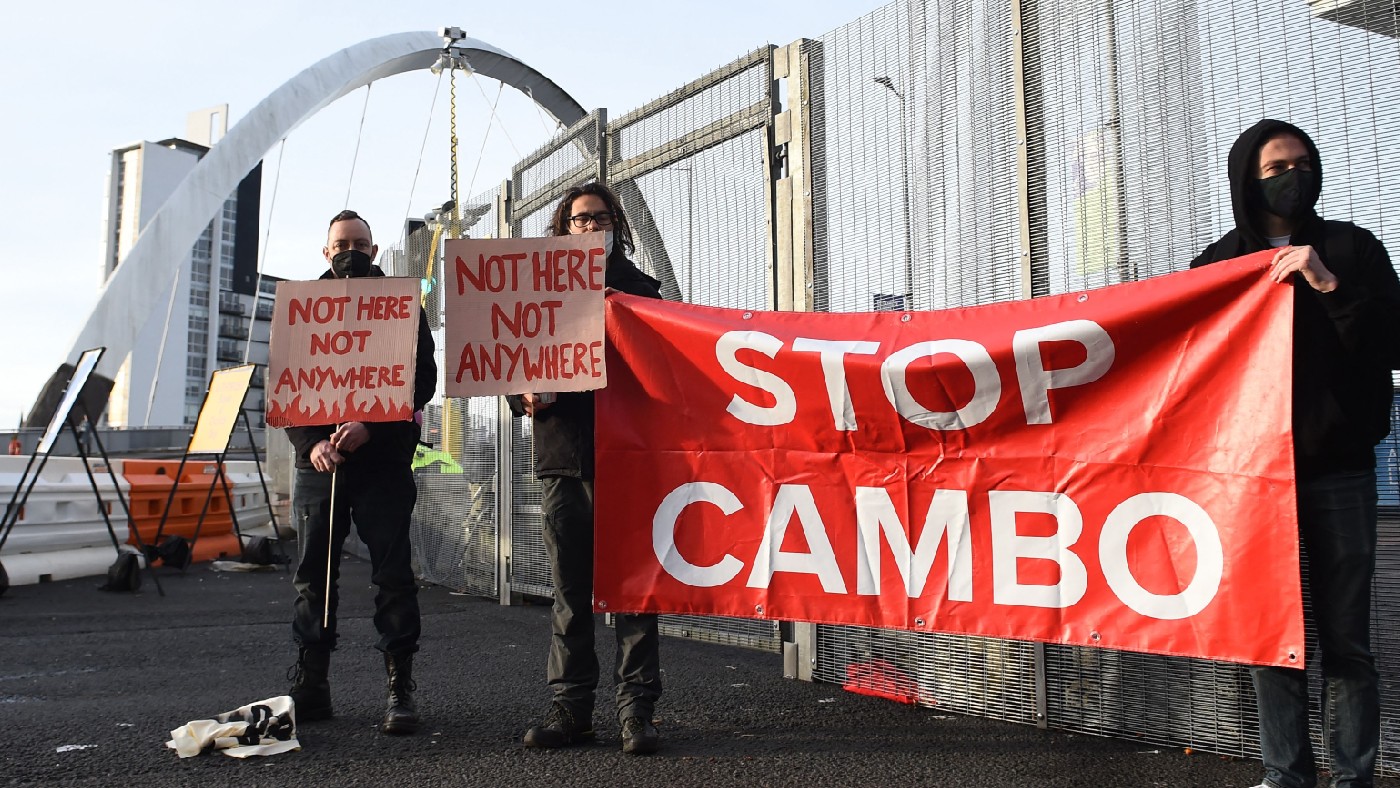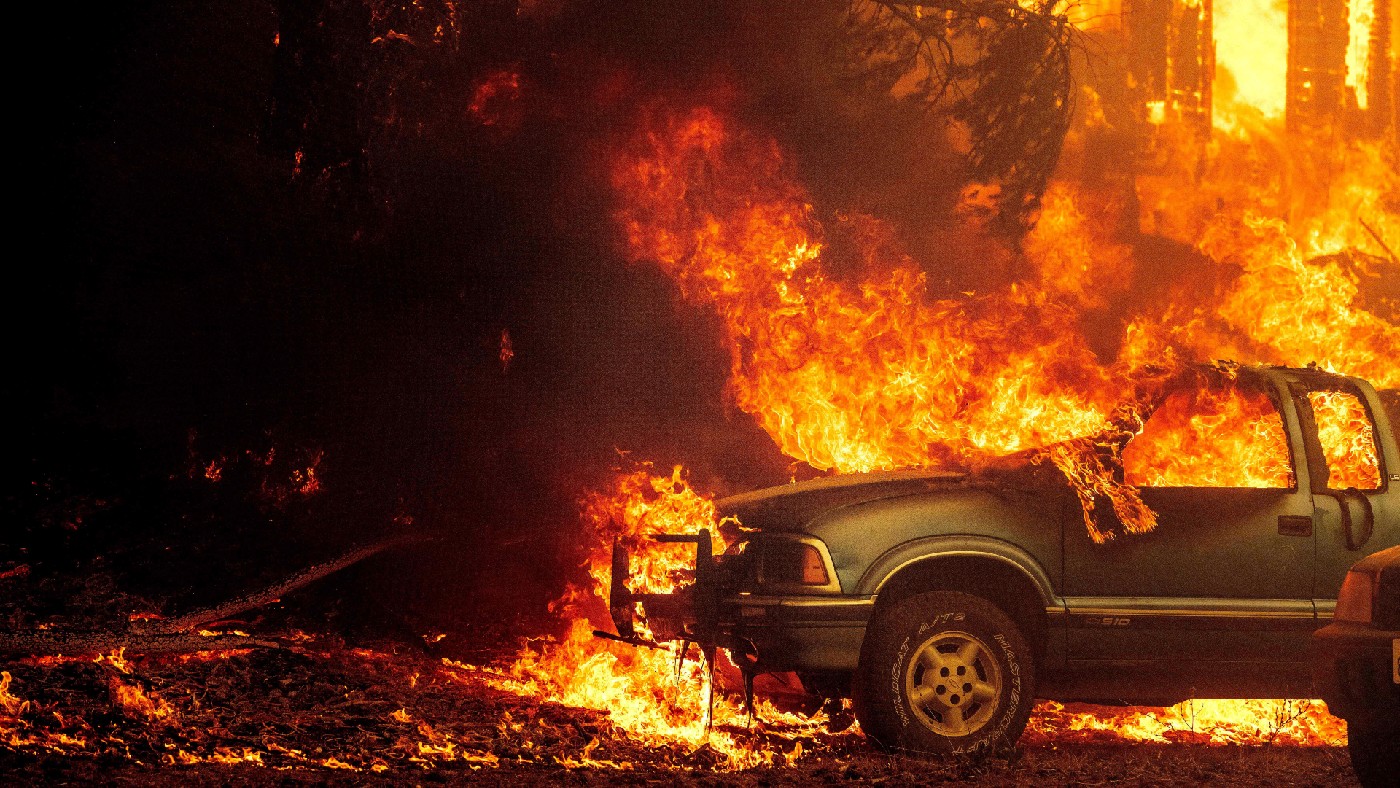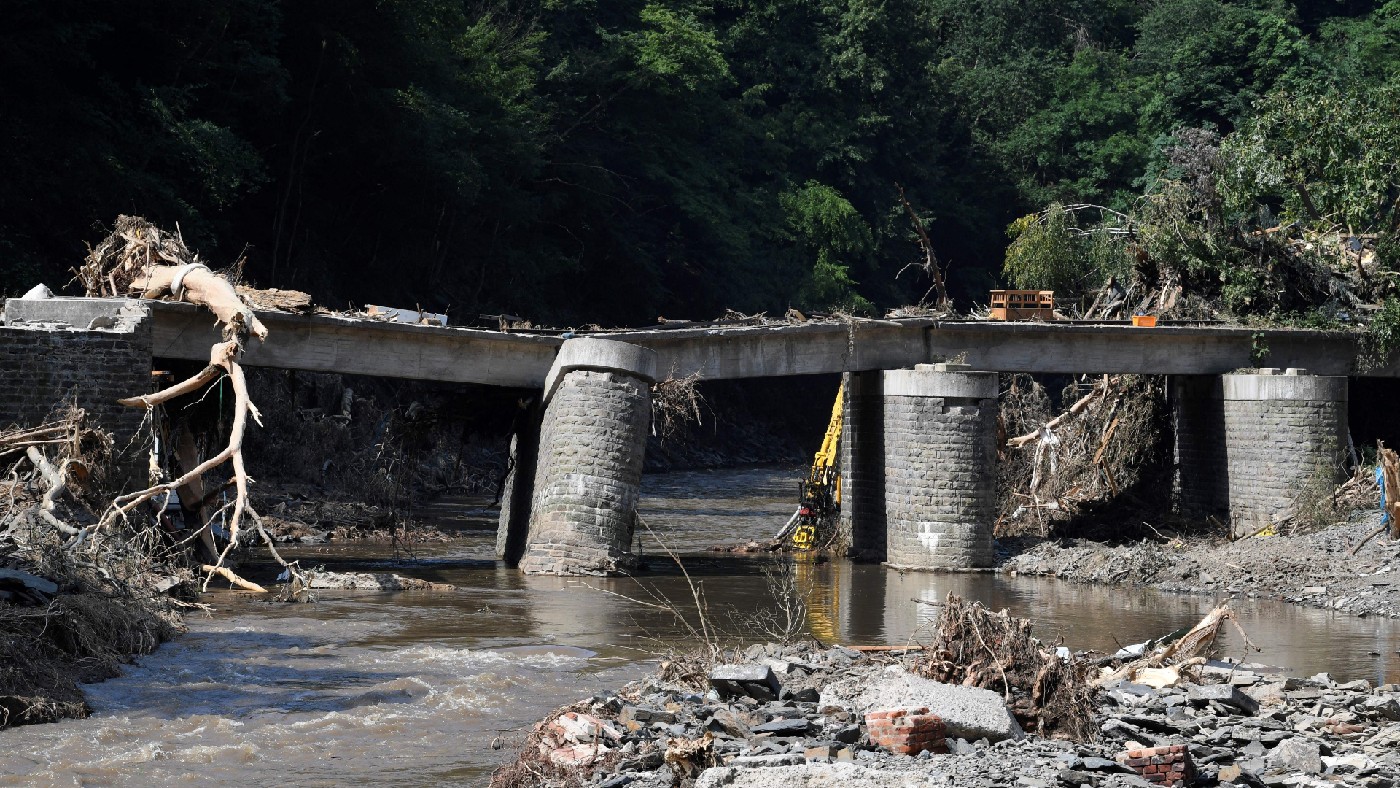British polar scientists to get new £200m icebreaker ship
Government to commission world-leading research ship for Antarctic and Arctic scientific research

A free daily email with the biggest news stories of the day – and the best features from TheWeek.com
You are now subscribed
Your newsletter sign-up was successful
GEORGE OSBORNE announced today that the government is to spend £200m on a new icebreaker polar research ship. The ship will be a boon to UK science, supporting researchers in both the Arctic and the Antarctic.
The vessel is expected to be 430ft long, says the BBC, and will come equipped with a helipad, cranes and onboard laboratories. It will have the capability to transport and deploy submarines and other ocean sampling equipment.
The vessel, which will be completed in 2019, will be among the most advanced and capable in the world. With a specially reinforced hull, it will be able to push deeper into the icepacks than any other British ship.
The Week
Escape your echo chamber. Get the facts behind the news, plus analysis from multiple perspectives.

Sign up for The Week's Free Newsletters
From our morning news briefing to a weekly Good News Newsletter, get the best of The Week delivered directly to your inbox.
From our morning news briefing to a weekly Good News Newsletter, get the best of The Week delivered directly to your inbox.
Current plans suggest that the ship will be able to maintain a speed of three knots while breaking through ice floes. Up to 60 scientists and research staff will be able to live aboard and the ship will be self-sufficient for up to 80 days, during which time it could cover 24,000 nautical miles.
Alarm has been sounded that the long-term plan may be to replace the UK's two existing polar research ships - one built in 1990, one in 1995 - with just one super-ship.
However, the National Environmental Research council, which funds polar science in the UK says there is no current plan to do this - though one of the two existing ships is owned by Norway and leased to the UK, and is likely to be returned after 2019.
It has not yet been decided where the ship will be constructed. The funding is drawn from the government's capital investment fund for science, to which the Treasury has committed £1.1bn a year in real terms until 2020-2021.
A free daily email with the biggest news stories of the day – and the best features from TheWeek.com
-
 The ‘ravenous’ demand for Cornish minerals
The ‘ravenous’ demand for Cornish mineralsUnder the Radar Growing need for critical minerals to power tech has intensified ‘appetite’ for lithium, which could be a ‘huge boon’ for local economy
-
 Why are election experts taking Trump’s midterm threats seriously?
Why are election experts taking Trump’s midterm threats seriously?IN THE SPOTLIGHT As the president muses about polling place deployments and a centralized electoral system aimed at one-party control, lawmakers are taking this administration at its word
-
 ‘Restaurateurs have become millionaires’
‘Restaurateurs have become millionaires’Instant Opinion Opinion, comment and editorials of the day
-
 Shell’s North Sea oil U-turn: ‘a first victory in a longer war’?
Shell’s North Sea oil U-turn: ‘a first victory in a longer war’?Speed Read Controversy after oil giant pulls out of proposed Cambo project
-
 Fires, floods and storms: America’s ‘permanent emergency’ has begun
Fires, floods and storms: America’s ‘permanent emergency’ has begunSpeed Read This summer of climate horror feels like the ‘first, vertiginous 15 minutes of a disaster movie’, says The New York Times
-
 Hot air and empty rhetoric: is the UK acting too slowly on climate change?
Hot air and empty rhetoric: is the UK acting too slowly on climate change?Speed Read ‘Every day, new evidence accumulates that humanity is on an unsustainable path’
-
 Germany floods: what led to this ‘once-in-a-century’ disaster?
Germany floods: what led to this ‘once-in-a-century’ disaster?Speed Read Nearly 200 people died in Germany and Belgium; hundreds are still unaccounted for
-
 Penguin colony at risk as Somerset-sized iceberg bears down on British overseas territory
Penguin colony at risk as Somerset-sized iceberg bears down on British overseas territorySpeed Read Several species face starvation if the icy giant blocks access to feeding grounds
-
 ‘Full of hot air’: climate experts exposed as academia’s most frequent flyers
‘Full of hot air’: climate experts exposed as academia’s most frequent flyersSpeed Read Study results trigger calls for environmentalists to ‘look in the mirror’
-
 Mystery of millions of migrating birds dropping dead from US skies
Mystery of millions of migrating birds dropping dead from US skiesSpeed Read Some experts believe the West Coast wildfires may be to blame for ‘unprecedented’ mass bird deaths in New Mexico
-
 Americans warned not to plant mystery seeds being sent to homes nationwide from China
Americans warned not to plant mystery seeds being sent to homes nationwide from ChinaSpeed Read Officials say the unsolicited packages have been mailed to residents in at least 27 US states